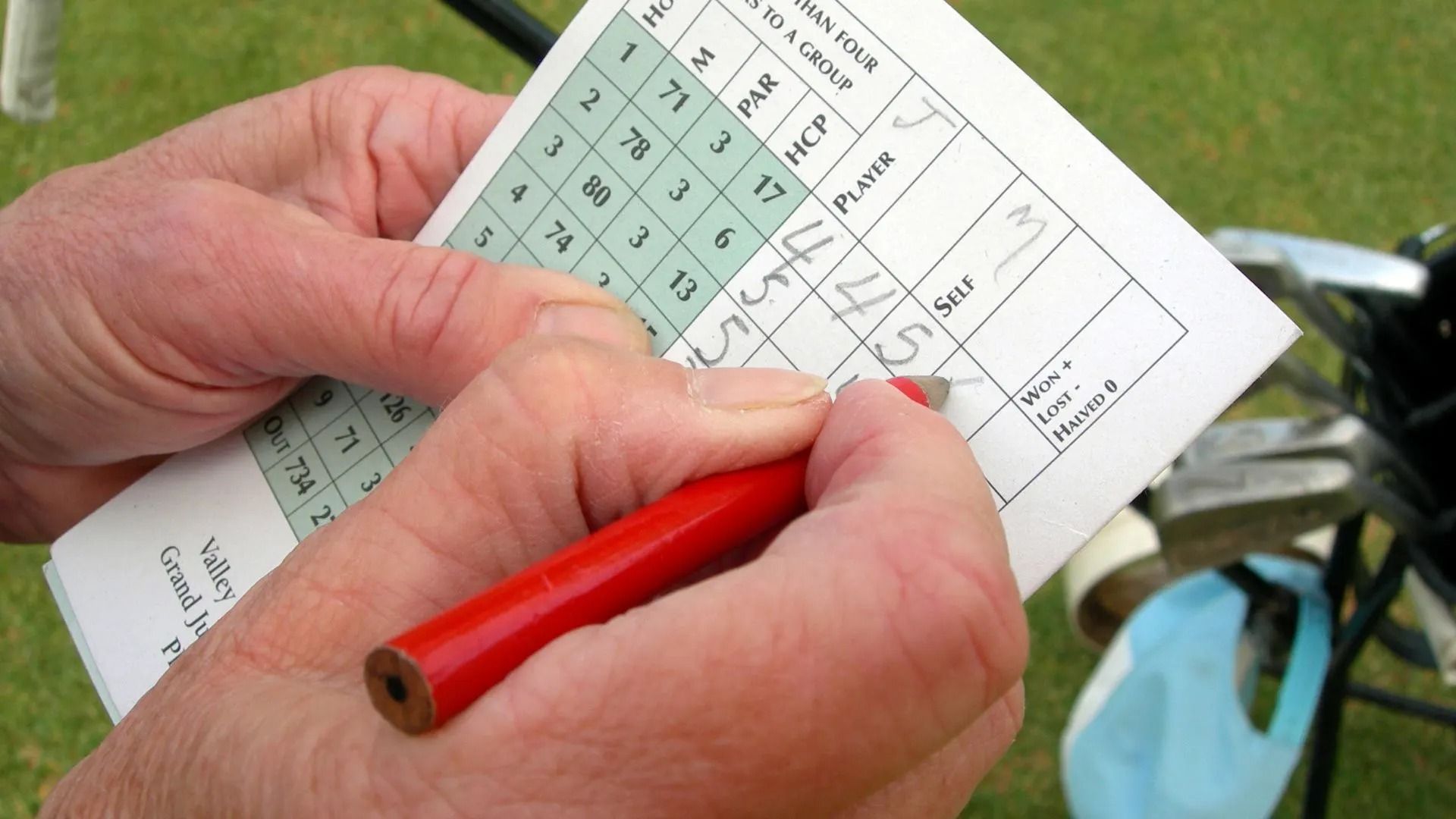How Long Does Golfing Take for 9 or 18 Holes? Let’s Break It Down
The 18th hole beckons in the distance as you check your watch, wondering if you’ll make it back for that dinner reservation. Whether you’re contemplating your first-ever golf round or you’re a seasoned player trying to squeeze golf into your busy schedule, one question inevitably arises: how long does golfing take?
Time is the hidden hazard of golf—the one variable that can make or break your experience on the course. While the serene green expanses promise relaxation, the reality of modern life demands that we understand what we’re committing to when we grab our clubs and head to the first tee.
In this comprehensive guide to golf’s most practical question, you’ll discover:
- The time it takes to play a standard golf course
- The real timeline behind 18 holes—not what courses advertise, but what actually happens when you factor in that slow foursome ahead of you
- Why your 9-hole “quick round” might save less time than you think (and when it’s the perfect solution)
- The walking vs. riding debate settled once and for all—which actually saves more time on the course
- Strategic tee time selection secrets that could shave up to an hour off your round
The Standard Golf Course: Understanding the 18-Hole Format
When planning your day around a golf game, the most fundamental question is: how many holes will you be playing? How will that impact the time it takes to complete the game?
Did you know that the world record for 18-hole golf course completion is slightly under 49 minutes? Obviously, that’s not a standard round og 18 holes and for most, the format may take longer to complete. So, what’s a realistic time to play a round?
How Long Does It Take to Golf 18 Holes?
The standard golf course consists of 18 distinct holes. This format has been the accepted norm since the Royal and Ancient Golf Club of St. Andrews standardized it in the late 19th century. So, how long does it take to play 18 holes of golf? A full round of golf means playing all 18 holes in sequence, typically requiring:
- 4-5 hours for a foursome (group of four players)
- 3-4 hours for a twosome (two players)
- Approximately 2-3 hours for a solo player with no delays
Each hole on the course is unique in its design, distance, and challenges, creating a comprehensive test of a golfer’s abilities across different scenarios.

The 9-Hole Alternative
For those with time constraints or beginners building stamina, a 9-hole round offers a more accessible option:
- Typically takes half the time of a full round (2-2.5 hours for a foursome)
- Often more affordable than a full round
- Perfect for twilight golf or fitting a game into a busy schedule
Many golf courses are designed as two 9-hole loops that begin and end near the clubhouse, making the halfway point a convenient opportunity to either conclude your game or continue for the full 18.
How Course Design Affects Timing: How Many Holes Are in Golf?
The layout and design of a golf course significantly impact how long it takes to complete a round:
- Course length: Championship courses with longer holes naturally take more time to play
- Distance between holes: Courses requiring long walks or cart rides between greens and the next tee box add extra minutes
- Course difficulty: Challenging courses with numerous hazards, thick rough, or fast greens can slow play as golfers search for balls or take more shots
Understanding these factors helps you better estimate how long an average round of golf might take, especially when playing an unfamiliar course. Always check with the pro shop about the expected pace of play when booking your tee time.
Additional Reading: Do you want to improve your game and turn into a pro? We have some expert tips for you in Mastering Your Swing: How to Hit Golf Irons Like a Pro.
Average Time to Golf 18 Holes (And What Impacts It)
Now that you understand the standard 18-hole setup, let’s talk about timing. One of the most common questions new golfers ask is: “How long will this take to complete a round of golf?”
A typical 18-hole round of golf takes between 4 and 5 hours to complete for an average foursome. However, this timeframe can vary significantly depending on numerous factors. On weekday mornings at a less crowded course, you might finish in just over 3 hours. Conversely, on busy weekend afternoons at popular courses, rounds can stretch beyond 5½ hours.
Most golf courses schedule tee times 8-10 minutes apart, operating under the assumption that groups will maintain a consistent pace throughout their round. However, real-world conditions rarely align perfectly with these idealized schedules.
What Affects How Long 18 Holes of Golf Take?
Several key factors influence the amount of time golf will take at a standard 18-hole course.
Skill level and experience
Beginners naturally take longer as they require more shots and may spend additional time searching for balls or deciding on club selection. Experienced players generally play faster, averaging fewer strokes per hole and making quicker decisions.
Players in your group
The size of your group matters significantly. A solo player might complete 18 holes in 2½ hours, while a foursome (the standard group size) typically takes 4+ hours.
Time of day and tee time
Early morning tee times generally move faster as the course is less congested. As the day progresses, bottlenecks often develop, particularly during peak weekend hours. Weekday play is typically faster than weekend play due to reduced course traffic.
Course design and layout
Some courses are simply more time-consuming than others. Factors include:
- Distance between holes (longer walks extend your round)
- Difficulty of the course (challenging holes lead to more shots and lost balls)
- Layout complexities (blind shots, water hazards, and deep bunkers slow play)
- Course maintenance conditions (recently aerated greens slow down putting)
Walking versus riding in a golf cart
Walking the course typically adds 30-45 minutes compared to using a golf cart, though this varies based on the course’s terrain and distance between holes. On some sprawling modern courses, the difference can be even greater.
Additional Reading: Fun fact – Do You Know How Many Golf Courses Are In The US?
How Long Does It Take to Golf 9 Holes?
If you’re short on time but still want to enjoy a round of golf, playing 9 holes offers the perfect solution.
Average Time to Golf 9 Holes
For most golfers, a 9-hole round typically takes between 1.5 to 2.5 hours to complete, an excellent option for:
- Busy professionals during lunch breaks or after work
- Beginners who might find 18 holes physically demanding
- Experienced players looking for a quick practice session
- Golfers with limited daylight hours, especially during winter months
A two-person group playing efficiently can sometimes complete 9 holes in as little as 1 hour and 15 minutes, while larger groups of four might require the full 2.5 hours.
Why 9 Holes Might Take Less Time—But Not Always
Playing 9 holes doesn’t always guarantee a quick round. Several factors can influence your pace of play:
Group Size and Composition
Smaller groups typically move faster around the course. A single player or twosome will almost always finish more quickly than a foursome. However, if you’re playing with beginners who are still learning the game, even 9 holes can stretch beyond the 2-hour mark.
Course Traffic and Management
Many courses don’t distinguish between 9-hole and 18-hole players when scheduling tee times. This means you might end up:
- Waiting behind 18-hole players who have priority
- Dealing with the same course congestion as full-round players
- Experiencing delays at bottleneck holes like par 3s
Time of Day Considerations
The popular misconception that 9 holes always equals a quick round falls apart during peak hours:
- Weekend mornings can be particularly slow, regardless of how many holes you’re playing
- Twilight rounds might offer less traffic but present time pressure as daylight fades
- Some courses offer dedicated 9-hole times that can provide a more predictable pace
Additional Reading: Discover What Is The Best All-Around Golf Ball?
How Long Does It Take to Play a Round of Golf (9 vs. 18 Holes)
Now that we’ve explored the average times for both 9 and 18-hole rounds individually, let’s compare them side-by-side and understand when to choose each option based on your available time.
Summary Comparison of Both Formats
When planning your golf outing, understanding the time commitment for each format helps you choose the right option:
9-Hole Round:
- Time commitment: 1.5 to 2.5 hours
- Perfect for: Weekday afternoons, lunch breaks, beginners learning the game
- Physical demand: Lower, with less walking/riding required
- Cost: Typically 50-60% of a full round price
18-Hole Round:
- Time commitment: 4 to 5 hours
- Perfect for: Weekend play, tournaments, full golf experiences
- Physical demand: Higher, requiring more stamina and focus
- Cost: Full greens fee, but better value per hole
Fun Extras That Can Extend the Duration of a Golf Game
A round of golf doesn’t have to be solely about getting through the course as quickly as possible. How long a round of golf takes depends on a couple of things apart from the course specifics and the group size. Your mood and desires also have to be accounted for when thinking about the time to complete a round.
Many golfers purposely extend their time on the course to maximize enjoyment and get the most out of their experience. After all, golf is as much about recreation and socialization as it is about competition. The average time to play isn’t a factor for many golfers.
Why a Longer Golf Game Isn’t Always a Bad Thing
While much of the discussion around golf timing focuses on playing efficiently, there’s something to be said for savoring the experience and going beyond the calculation of how long the average round of golf takes. A deliberately extended golf outing can create more memorable moments and greater satisfaction from your time on the course. The key is extending your game intentionally rather than through slow play that frustrates others and impacts their time on the golf course.
Warm-ups at the Range
Many golfers choose to arrive early and spend 30-60 minutes at the driving range before their tee time:
- A proper warm-up can improve your performance during the actual round
- Most courses offer practice facilities that are included in your greens fee
- Hitting a bucket of balls, practicing your short game, and spending time on the putting green can add an hour or more to your total golf outing
Additional Reading: The right equipment makes a difference. Whether you’re warming up or you’re looking for ways to increase the fun, check out our guide on Luxury vs. Budget Golf Brands.
Social Time, Photo Ops, Snack Breaks
The social aspects of golf often extend beyond the actual play:
- Many groups take a brief break at the turn (between holes 9 and 10) to grab food and drinks
- Nineteenth hole activities (post-round drinks or meals) can add another 1-2 hours
- Photo opportunities at signature holes or scenic spots on the course
- Friendly wagers and games within your round often involve brief celebrations or discussions
Enjoying the Scenery and Experience
Golf courses are often designed to showcase natural beauty, and taking time to appreciate it can enhance your experience:
- Wildlife viewing opportunities abound on many courses
- Scenic vistas and photo-worthy landscape features
- Some golf destination courses encourage players to linger and enjoy the surroundings
- Walking rather than riding can help you better appreciate the course design and natural setting
Remember that while these extras can enhance your golfing experience, it’s important to be mindful of players behind you. If you want to extend your time on the course, consider scheduling your round during off-peak hours or letting faster groups play through so everyone can enjoy their preferred pace of play.
Mastering Your Time on the Course: The Power of Preparedness
Time management in golf isn’t just about playing faster—it’s about playing smarter. The duration of your round will always depend on multiple factors, from course conditions to your group size, but armed with the knowledge from this guide, you’re now equipped to make informed decisions about when and how to play.
The beauty of golf lies in its flexibility. On days when your schedule is tight, opt for 9 holes, choose a less crowded tee time, or utilize a cart to speed up play. When time permits, embrace the full experience—walk the course, engage with your playing partners, and savor those perfect shots that keep us all coming back.
For players looking to optimize their golf experience even further, advanced tee time scheduling systems like those offered by Stacker’s golf course management platform can help you find the perfect balance between course availability and your personal schedule.
Golf is ultimately about enjoyment—not rushing through each hole. By understanding the time commitments involved and implementing the strategies we’ve discussed, you can focus on what truly matters: improving your game, connecting with fellow golfers, and appreciating those pristine moments on the fairway when everything comes together perfectly.
The next time someone asks you, “How long does it take to play golf?”—you’ll have more than just a simple answer. You’ll have the expertise to help them plan their perfect day on the course.
Quick Reference Guide: How Long Does It Take to Play Golf?
How Long Does a Round of Golf Take
- 18 holes of golf: 4 to 4.5 hours on average
- 9 holes of golf: 2 to 2.5 hours on average
- Par 3 course: 1.5 to 2 hours for 18 holes
- PGA Tour professionals: Approximately 4 hours for a threesome
- Championship tournaments: Often 5+ hours due to high stakes and difficulty
Factors That Impact How Long It Takes to Play 18 Holes or 9 Holes
- Group size: Each additional player adds 30 minutes on average
- Solo player: 2.5 hours for 18 holes
- Twosome: 3 hours
- Threesome: 3.5 to 4 hours
- Foursome: 4 to 4.5 hours
- Transportation method:
Walking: Adds 30-60 minutes compared to riding - Golf carts: Speeds up play by approximately 30%
- Push carts: Slightly faster than carrying clubs
- Course factors:
Course difficulty: Challenging courses add time - Layout: Distances between holes affect walking time
- Conditions: Wet grounds, thick rough slow play
- Course management: Tee time intervals impact pace
- Player experience: Beginners typically add 1-2 hours to a round
- Time of day:
Early morning: Fastest rounds (3.5-4 hours) - Midday: Moderate pace (4-4.5 hours)
- Afternoon: Slowest rounds (4.5+ hours)
How to Speed Up Your Round of Golf
- Be ready to hit: Prepare while others are playing
- Play ready golf: Hit when ready, not strictly by honors
- Limit practice swings: One practice swing is sufficient
- Streamline pre-shot routines: Keep routines under 20 seconds
- Smart ball searching: Limit searches to 3 minutes
- Strategic cart use: Drop partners at their balls, then go to yours
- Efficient green reading: Begin reading while others putt
- Score at next tee: Record scores after leaving the green
- Consider alternative formats: Try scramble or best-ball formats
When to Plan Extra Time to Play
- Weekend mornings: Peak times usually require 4.5+ hours
- Holiday play: Expect 5+ hours on major holidays
- Tournament days: Add 30-60 minutes to usual times
- New or unfamiliar courses: Allow extra time to navigate
- Playing with beginners: Budget an additional hour
Making the Most of Your Tee Time
- 9-hole options: Perfect for time-limited schedules
- Twilight rates: Discounted afternoon tee times
- Off-peak play: Weekday mornings for faster rounds
- Course selection: Choose less crowded courses when pressed for time
- Early arrival: Allow 30 minutes before tee time for preparation
Remember: The goal isn’t just to play fast, but to maintain a reasonable pace that respects others while still enjoying your game!



